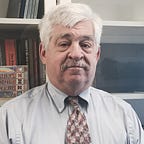Evolution and Peacebuilding
Evolution and Peacebuilding
ln graduate school, I was trained to be a conventional quantitative political scientist so I could do a study on the new left in France. Against the advice of my political scientist mentors, I also took courses with Charles Tilly who forced me to pay attention to long-term historical dynamics. He and I spent most of our time in a never-ending debate over the need for violence in large scale social change.
The last time I saw Chuck before he died, I told him I was interested in how evolution played into all of this. He rolled as eyes and muttered something like “your curiosity has taken you too far this time.” I was beginning to think about the social changes taking place at the dawn of this century and how theorists we were both interested in were talking about how things would be different in a globalized, networked, world.
Since then, I have increasingly become convinced that we are at the beginning of a new historical era in which the opportunities to make major social changes and advance human evolution are now becoming available. The social scientist David Ronfeldt has argued that this new period will be dominated by institutions and organizations that best take advantage of the networked nature of our lives. As he put it, the “bad guys” may figure out how to do so first, but the rest of us do catch up.
Given all that, I devoured Richard Wrangham’s new book, The Goodness Paradox, which I’ve discussed elsewhere. His work focuses on the evolution of what he calls our collective proactive aggression or our capacity to cooperate and plan in advance in benefit of our individual and group interests. As he argues,
How and why does all this matter for those of us in peace and conflict studies, which is really what I should have studied way back when? Here, we have become fixated on systems and complexity approaches to understanding and acting in a VUCA (Volatile, Uncertain, Complex, and Ambiguous) that is characterized by networks and interdependence world.
Those theories teach us many things, including giving empirical validation to the cliché that what goes around come around. If I act in a way that harms you, you are likely to try to get back at me. If I help you, you are likely to be help me. In both cases, other things being equal which, of course, they never are, especially in a VUCA world.
That said, I’m left asking a simple but difficult question. How do we best harness what Wrangham calls our collective proactive aggression in a VUCA world. Increasingly, we see that the violent outlets for that aggression keep getting us in trouble. What if, as Wrangham also suggests, we learn how to emphasize the collective and proactive sides of that aggression and harness it for reaching group goals?
I sincerely doubt that we would end_the use of violence. However, we could reduce its use.
We could evolve. We would grow superhuman physical powers or even a sixth finger. We would evolve intellectually.
Doing so, of course, is our greatest evolutionary asset.
The views and opinions expressed in this article are those of the author and do not necessarily reflect the official policy or position of the Alliance for Peacebuilding or its members.
Originally published at Chip Hauss.
